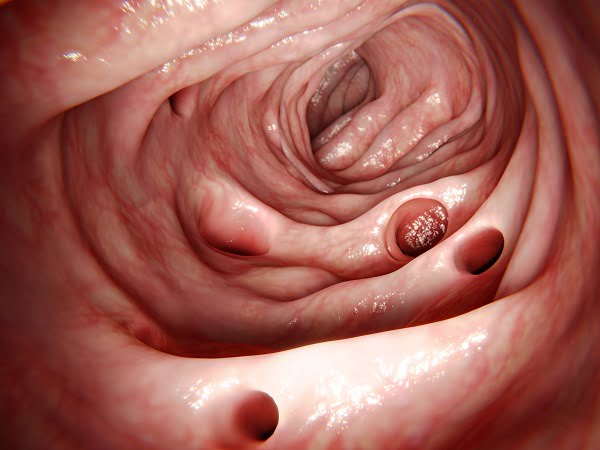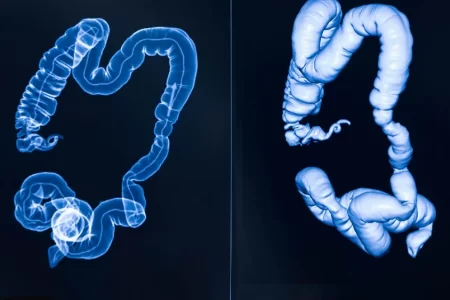An Overview of Diverticulitis
- Updated on: Jul 10, 2024
- 3 min Read
- Published on Sep 25, 2019


What are Diverticula and Diverticulitis?
Diverticula are small sacs or blisters that bulge out from the lining of the colon (or large intestine). When these sacs, present in colon get acutely infected and inflamed, the condition is called as Diverticulitis (or colonic diverticulitis).
Bacterial infection is the cause of inflammation of the pouches. It is thought that infection develops when a hard piece of stool or undigested food material gets trapped in any of the pouches. This gives bacteria in the stool a chance to grow and multiply which ultimately triggers an infection.
The onset of symptoms may take few days from infection. Pain usually on the left side of lower abdomen accompanied with rectal bleeding is a common sign of this disease. Fever, nausea, diarrhea (or constipation) with blood in stool are other symptoms of diverticulitis.
Abscess formation, fistula formation and perforation of the colon are the complications associated with diverticulitis which may later require surgery as treatment.
Prevalence and Facts about diverticulitis
This gastrointestinal condition is quite common in the western part of the world but uncommon in Asia and Africa. The disease becomes frequent with age and in people above the age of 50 years.
Some surveys revealed that people in North America and Europe feel pain on the left side while people in Asia often feel it on the right side of the lower belly. The reasons may be genetics or ecology for this but no concrete results were found.
Although obesity, lack of exercise, smoking and family history of the disease is taken as a risk factor, the main cause of this disease is still unknown. Doctors also suggest that non-steroidal anti-inflammatory drugs (NSAIDs) may also be the reason for developing diverticulitis.
Signs and symptoms of diverticulitis
Development of symptoms may take few days and may vary from person to person. Following are the common symptoms of diverticulitis:
- pain in the lower belly
- bloating and cramping
- constipation and diarrhea
- rectal bleeding
- fever and chills
- nausea and vomiting
Read more about signs and symptoms of diverticulitis.
How do diverticula form?
The bulges or diverticula are formed through weak spots present in the outer layer of the digestive tract. Although these pouches can occur in any place from mouth to anus, they usually develop in the lower left portion of the large intestine.
These pouches are marble-sized and occur in places where the blood vessels run through the intestinal walls. The development of pouches may not cause any symptoms until they get infected and inflamed. The exact reason of developing these bulges is still not known.
Fiber is known to make stool soft and large so that less pressure is required by large intestine to push it out of the body. When a person applies too much of pressure to pass out hard and small pieces of stool, weak spots are created in the outer layer of the colon.
The inner mucosal layers sometimes squeeze out through these weak spots and create diverticula. These diverticula when gets infected cause diverticulitis.
Risk factors for diverticulitis
Most of the diseases have risk factors associated with them, so does diverticulitis. Following are the risk factors associated with the development of this condition in people:
- obesity and overweight
- persistent constipation
- smoking
- family history of the disease
- use of NSAIDs drugs like ibuprofen or naproxen
Diverticulitis disease may be chronic and its symptoms may overlap with irritable bowel syndrome (IBS).
For diagnosis, doctors may perform a blood test, CT scan and colonoscopy. Physical examination may be sometimes required for detection. The role of dietary fiber is still unclear but taking fiber-rich diet and drinking plenty of water can decrease the risk.
Know more about diagnosis of diverticulitis
Mild diverticulitis can be treated with antibiotics and a liquid diet. However, for severe, the patient is admitted to hospital and complete bowel movement rest is recommended. The condition can be treated with proper medications but it can recur.












